#biodiversity documentation
Text
The Nature-Inspired Journey of Emperor Hirohito
Walking in the Footsteps of Hirohito: A Greenery Day Exploration
The story of Greenery Day which has a name change to “Showa Day” takes us back to the youthful days of Japanese Emperor Hirohito, a man whose passion for marine biology and nature shaped the celebration we honor on April 29. Showa Day is the revamped name for Greenery Day, honoring Emperor Showa’s fondness for plants, also known as…

View On WordPress
#April 29#biodiversity documentation#Biodiversity Inventory#Celebrating Life and Science#Citizen Science#City Nature Challenge#Cnidarians#Communing with Nature#Discovery and Understanding#Emperor Hirohito#Environmental Legacy#Evolution of Tradition#George Genereux Urban REgional Park#Global Appreciation#Global Health#Greenery Day#Greenery Day Chronicles#Humblest Orders of Life#Hydrozoans#iNaturalist#iNaturalist app#inspiration#interconnectedness#invasive species tracking#Japanese Culture#Japanese Emperor#legacy#Marine Biology#Marine Life#Microscopic Observation
1 note
·
View note
Text


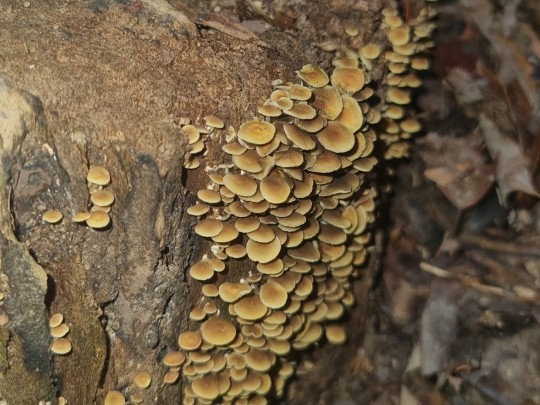

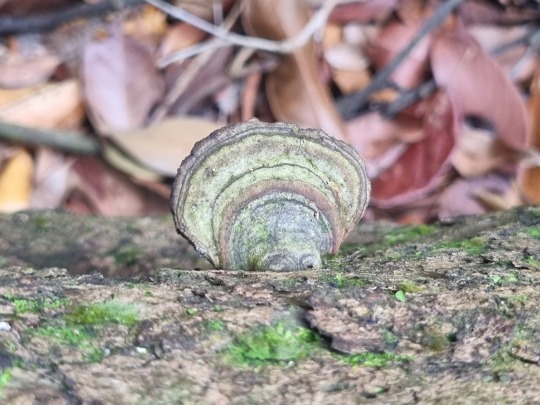





saw a lot of fungi on a hike <3
(image IDs under the cut)
Image 1: Close-up, top view of Mycena roseilignicola (Rosy Mycena) on a mossy log. They have clear pink caps with depressed centres, and stipes (hardly visible).
Image 2: Front view of Amauroderma rugosum on the forest floor. It has a brown stipe. It has a cap with concentric zones of brown and slightly rolled black edges.
Image 3: Fungus in the Flammulina genus on a vertical piece of log, with yellow-brown caps that are darker in the centre. It is broadly convex and has stipes (hardly visible).
Image 4: Rhodofomitopsis feei on a log. It is sessile (no stipe, bracket fungi). It has a cap with concentric zones of brown, and white edges.
Image 5: Fungus in the Trametes family on a mossy log. It is sessile and its cap has concentric zones of brown, light brown, green, and brown.
Image 6: Scattered Mycena roseilignicola (Rosy Mycena) and Mycena chlorophos on decaying sections of a log. The photo is overexposed and the caps of the Rosy Mycerna appear whitish, almost light pink. They have depressed centres and visible stipes. Mycena chlorophos are small and white, with broadly convex caps and stipes.
Image 7: Top view of Mycena chlorophos on a crevice of a log. They are small and white, with slightly recurved edges and less visible stipes.
Image 8: Fungus in the Ganoderma genus on a vertical piece of wood. It is brown with a sandy texture closer to the wood, has irregular concentric zones of darker brown, and is white at the edges.
Image 9: Fungus in the Ganoderma genus on a piece of wood. It is sessile, dark pink near the wood and white or light pink at the edges. It has slightly recurved edges and a moldy-looking texture.
Image 10: A further, point-of-view shot of Scattered Mycena roseilignicola (Rosy Mycena) and Mycena chlorophos on a log. The fungi appear to be very small, clustered along some sections of the log. There are dead leaves on the forest floor and various plants in the background.
#had to stray from the trail to look at them more closely while other people were focusing on exercising and running and things oops#I'M SO HAPPY i finally got to escape into nature again <333#excuse my limited photography skills they look nicer with the eyes#IDs are from inaturalist/google lens/biodiversity websites/books on fungi -- i'm still learning so let me know if i ID-ed them wrongly!#pretty sure the tiny white ones in pics 7 and 10 would be bioluminescent if i had gone at night#also i have more pics :) they're scheduled for other days#my posts#fungi#mushrooms#fungus#pics#and if i only mentioned the genus. it was bc IDing the species was so hard lol#some of them haven't been documented very often and i'm just bad at identifying them#there is so much fungi in the world!! even in a whole fungi book there were unidentified species they could only classify by genus
15 notes
·
View notes
Text
Actually on the train of thought of tfs being semi horrific in a sci-fi way, I think just their presence on the planet would rlly effect nature on a ecological scale. like if they crashed on earth and immediately started to try to hide away from people, they wouldn't rlly be able to stop scientists hearing reports of things not being right in this location they crashed in. fishers complaining about a lack of fish, animals acting weird, and traces of metals that are unlike those on earth. That would be fucked up yeah?
#tfs taking the thematic form of unknowable horrors is. something i think about teehee twirls my hair#I THINK. IT COULD BE COOL#and a rlly suspenseful way to introduce tfs into the earth setting#of course the notion of being unsure abt them would be completely wipes away once they get onto their normal tf stuff#since u would then be aware of their intentions and the story would shift to being abt a space war#but cmon it would still be fun !! for the brief moments it would pass as cosmic horror a la the color from space#also it could just be funny. like we all assume the transformers can hide from humans#but some ecology major finds out abt them bc they were doing a study on the bacteria levels in a lake#ig thats why they gotta have the government help cover it all up#but like in tf:a they weren't gonna work with the us government THEY WERE NAPPING!!!!#some nerd shouldve found out abt them in those 50 yrs by seeing the biodiversity of the lake get fucked up#but nooooo we don't get fun things /j#whatever i think there should be a human companion that works for fish and game or smth#and they discovered the robots while documenting the fish population#🐝 could you repeat the last part? 🟦
24 notes
·
View notes
Text
David Attenborough is the only old white man I trust to be president.
#watching his movie on netflix. it's half biopic and half documentary.#and the way he describes his life! the way he has SEEN. in a concrete way. the world change.#he's been traveling since the 1950s#and documenting what he saw the whole time#he was there for the moon landing. and how it changed our perception of the planet#just... the way he talks about the natural earth and conservation and biodiversity#simultaneously inspiring and utterly depressing#like. do i know it's scripted. yes. does it sound written? not really.#david attenborough#a life on our planet#(that's the name of the movie)
18 notes
·
View notes
Text
The full extent of the damage in Gaza has not yet been documented, but analysis of satellite imagery provided to the Guardian shows the destruction of about 38-48% of tree cover and farmland.
Olive groves and farms have been reduced to packed earth; soil and groundwater have been contaminated by munitions and toxins; the sea is choked with sewage and waste; the air polluted by smoke and particulate matter.
Researchers and environmental organisations say the destruction will have enormous effects on Gaza’s ecosystems and biodiversity. The scale and potential long-term impact of the damage have led to calls for it to be regarded as “ecocide” and investigated as a possible war crime.
[...]
He Yin, an assistant professor of geography at Kent State University in the US, who studied the damage to agricultural land in Syria during the 2011 civil war, analysed satellite imagery showing that up to 48% of Gaza’s tree cover had been lost or damaged between 7 October and 21 March.
As well as direct destruction from the military onslaught, the lack of fuel has led to people in Gaza having to cut down trees wherever they can find them to burn for cooking or heating.
“It’s whole orchards gone, only soil left; you don’t see a single thing,” Yin says.
Independent satellite analysis by Forensic Architecture (FA), a London-based research group that investigates state violence, found similar results.
Before 7 October, farms and orchards covered about 170 sq km (65 sq miles), or 47% of Gaza’s total land area. By the end of February, FA estimates from satellite data that Israeli military activity had destroyed more than 65 sq km, or 38% of that land.
As well as cultivated land, more than 7,500 greenhouses formed a vital part of the territory’s agricultural infrastructure.
Almost a third have been destroyed entirely, according to FA’s analysis, ranging from up to 90% in the north of Gaza to about 40% around Khan Younis.
508 notes
·
View notes
Photo

A new species of Parachute Gecko of the subgenus Ptychozoon (Sauria: Gekkonidae: Gekko) from the Indo-Burma region
Hmar Tlawmte Lalremsanga, Lal Muansanga, Mathipi Vabeiryureilai & Zeeshan A. Mirza
Abstract.
The Parachute Gecko Gekko lionotum (Annandale, 1905) has been reported to be distributed across parts of Mizoram state (India), Bangladesh, Myanmar, Thailand and Cambodia.
A phylogeographic study revealed that the species is paraphyletic and comprises multiple cryptic species. Earlier studies included samples from most parts of the species range except for India, and the status of the Indian population remained unresolved.
We conducted surveys in Mizoram and collected specimens, which allowed us to assess the systematic status of the Indian population. Morphology and molecular data suggest that the Indian population represents a distinct species and is here described as new.
The new species is most similar to its sister species Gekko popaensis, from which it differs in having an uncorrected pairwise sequence divergence of 7–14% and by discrete differences in morphology and colour pattern.
The discovery of the new species and several other reptiles from northeast India highlights the poor state of biodiversity documentation and the need for dedicated efforts to documumentation and the need for dedicated efforts to document this region’s biota.
Read the paper here:
https://www.salamandra-journal.com/index.php/home/contents/2115-lalremsanga-h-t-l-muansanga-m-vabeiryureilai-z-a-mirza/file
1K notes
·
View notes
Text
Deep-sea stars
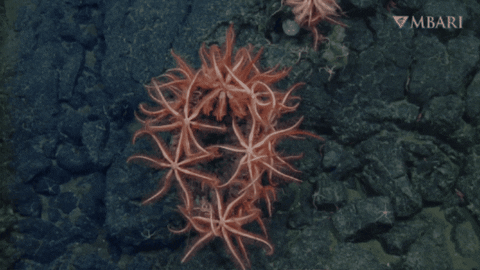
The deep seafloor is home to a dazzling diversity of star-shaped invertebrates. From expansive abyssal plains to rocky canyons, these stars—in the subphylum Asterozoa—have adapted in various ways to thrive in the deep.
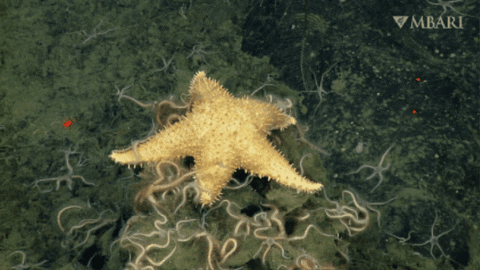
Some of these underwater stars scuttle across the mud on an army of tiny tube feet. Others perch on rocky outcrops, waving a twisted tangle of arms in the current.
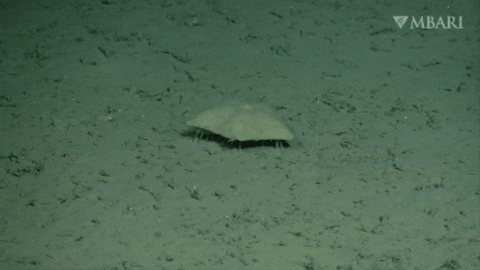
Their diets range from tiny drifting plankton to scavenged scraps, or crustaceans, worms, and even the occasional fish! Several of these sensational stars have armored plates for protection, while others spew nasty slime when a predator tries to grab a bite!
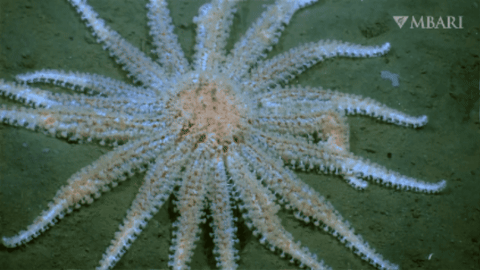
Understanding and documenting the amazing biodiversity of animals in the deep sea is increasingly critical. Fishing pressure, pollution, and climate change all threaten ocean health. Help us spread the word about protecting the important but rarely-seen habitats deep below the ocean’s surface.
youtube
409 notes
·
View notes
Text
Wonderful news from the Cyclops Mountains of West Papua today with the rediscovery of Attenborough's long-beaked echidna (Zaglossus attenboroughi)!
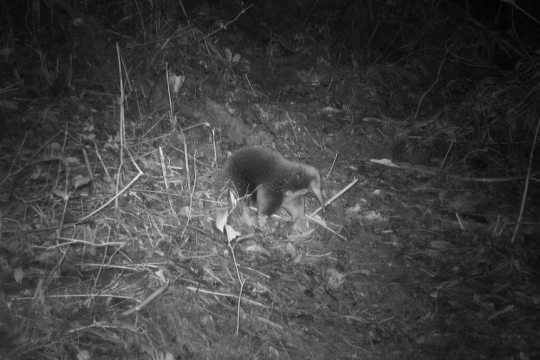
(Image credit: Expedition Cyclops)
Previously known a single specimen collected in 1961, Attenborough's long-beaked echidna has long been one of the world's most elusive mammals. Recognised as a distinct species in 1998, an expedition to the Cyclops Mountains in 2007 failed to observe the echidna but found evidence of recent diggings and foraging activity which, alongside local knowledge, implied that the species still survived in those remote mountain forests.
Finally, just a few months ago, a new expedition into its remote mountain home by Expedition Cyclops caught the first ever footage of Attenborough's long-beaked echidna in the wild, which is also the first time it has been seen by scientists in over 60 years. In a remarkable stroke of luck, the echidna was captured on the last of over 80 camera traps on the final day of the trip!
Attenborough's long-beaked echidna is the most distinctive of the three species of long-beaked echidna thanks to its smaller size, shorter, straighter beak and reddish-brown fur. Its habits are virtually unknown, but its differently shaped beak may suggest that it differs in diet and feeding habits from the other two long-beaked echidna species. It appears to be endemic to the highest elevations of the Cyclops Mountains, which are steep, extremely rainy and treacherous to explore, hence why it remained hidden for so long.

(Image credit: Expedition Cyclops)
There are only five species of monotreme alive today, the sole living custodians of a lineage stretching back some 200 million years, and this makes each species extraordinarily valuable. Unfortunately, all three species of long-beaked echidna are threatened with extinction, with Attenborough's long-beaked echidna being classed as critically endangered. Losing any species is a tragedy, but for a group as small and precious as monotremes, any extinction would be especially disastrous.
Alongside the rediscovery of the echidna, Expedition Cyclops also made the first record of Mayr's honeyeater (Ptiloprora mayri) in 16 years and discovered dozens of new species of insects, arachnids, shrimp and frogs. Their work documenting the hidden biodiversity of the Cyclops Mountains is ongoing, so if you'd like to follow and support the expedition make sure to visit their website!
https://www.expeditioncyclops.org/
#oceania#papua#west papua#new guinea#wildlife#mammal#mammals#monotreme#monotremes#echidna#echidnas#animal facts#animal news#mammalogy#natural history#my stuff
288 notes
·
View notes
Text
this is the place to post about your knowledge and i’m thinking about my little royal sunangel (from the coquette hummingbird family) google deep-dive and i wanted to show you guys these rare little bastards!
this is a male (left) and female (right) sunangel, they’re sexually dichromatic (different colors indicate different sexes) and so, so teensy! they’re roughly 4.3-4.7 inches/10-12 cm long from their beak to their tail!
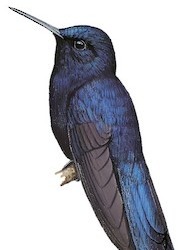

they’re as little in number as they are little in size, too. they are exclusively found in the bordering andes area ecuador and peru share, where there are subtropical elven forests (because everything about them deserves a pretty name). there are only 8 known sunangel habitats within this area. when documentation started, around the start of the 2010s, there were 12. the estimated population of this endangered bird is anywhere from 3-7 thousand. the royal sunangel population has been steadily — and scarily — declining since their discovery in 2009, and this is largely attributed to the deforestation due to frequent forest fires and the conversion of their habitats into agricultural fields.
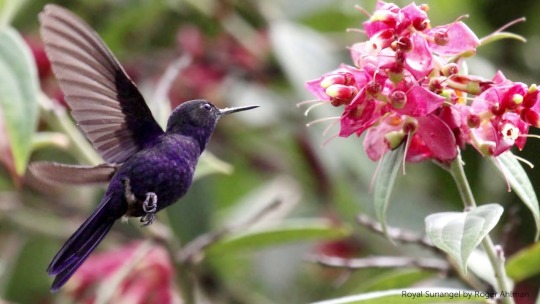
it feels like the royal sunangel JUST got discovered, and the scientific community has only JUST started noting down how unique they are among their hummingbird family and birds at large, and now their delicate little frames and stubborn commitment to their habitat range might lead them to death’s door before i reach middle age and have the credentials or cause to observe them myself. ornithologists love these little guys because they feed in these little circuits so no two (super territorial) males may meet, and when they feed, they either stalk and eventually eat insects or take nectar from shrubs and flowers using the punctured feeding holes of some other animals’ labor. also, you know how hummingbirds famously hover while they feed? these hummingbirds are the only ones who don’t. they perch and relax (as is only sensible)!
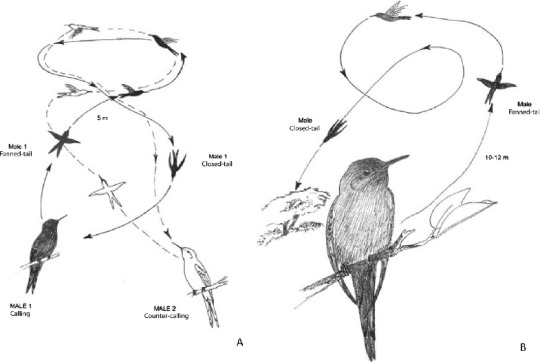
If you find them as charming as I do, or if you have a heart, you’re probably asking yourself how we go about conserving these birds in the first place.
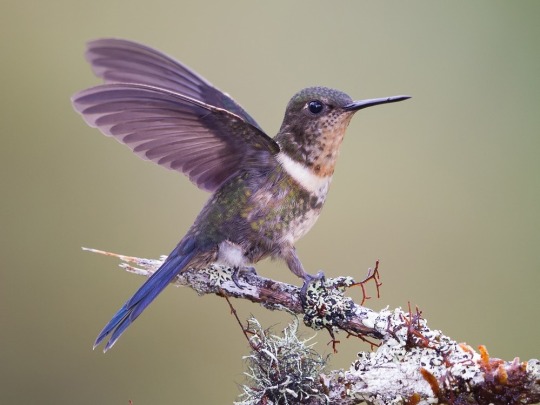
well, on the agricultural front (which is more heavily an ecuadorian obstacle for these habitats), the situation feels more complicated. ecuador’s market relies on agricultural exports and i don’t see how tumblr users could make the government prioritize sustainability over profits. There are already conservation groups trying to fight that good fight and buy properties on these fragile biodiverse lands before agricultural companies can (you can punch in neoprimate.org for a good one, my link function isn’t working on here) and if you can donate a little to these initiatives you’d be contributing to the protection of tons of endangered species in the local areas.
another way to prevent habitat loss is by funding efforts to prevent the forest fires that frequently wipe out habitats around this area, especially those in peru (the area with the majority of sunangel habitats). there are legal and activist groups putting energy towards that that’s linked above, but another subtle improvement is to provide local farmers and residents with fire weather forecast devices. this way, everyone will be on the same page, and know that if it’s an arid/risky day to light a fire, they should act conscientiously. these devices are being circulated and groups are educating about and encouraging them to the local communities and could use some help in these links. below, i have a screenshot from an organization that doesn’t have a clear donation link for me, but i heavily encourage supporting, because ultimately i think local, sustainable, community-based and indigenous-prioritizing efforts are the way to go.
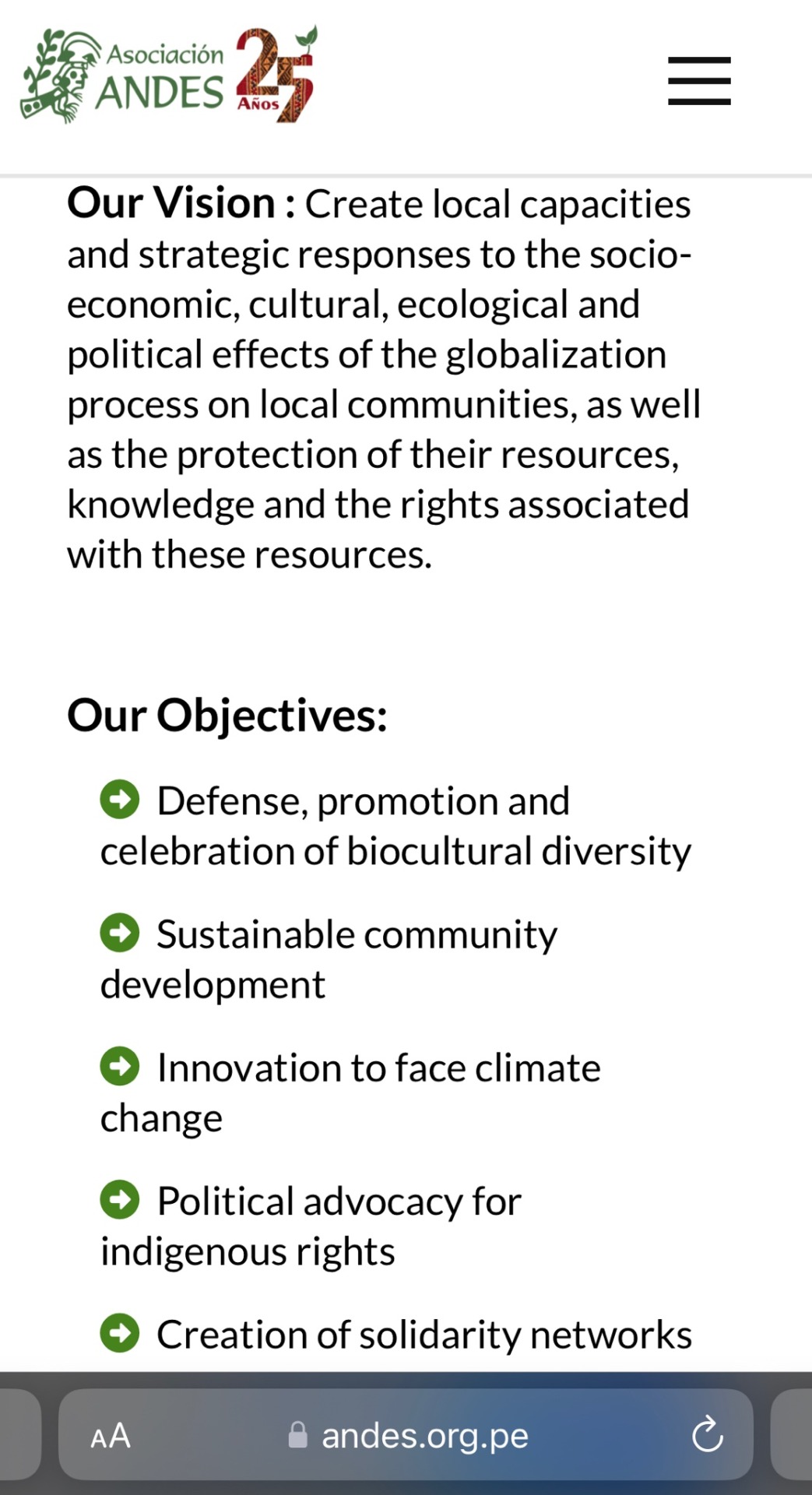
thanks so much for listening to my little spiel about these cuties, and i hope this information brightens your day and motivates you to care about the beautiful things we can protect. 💙💜
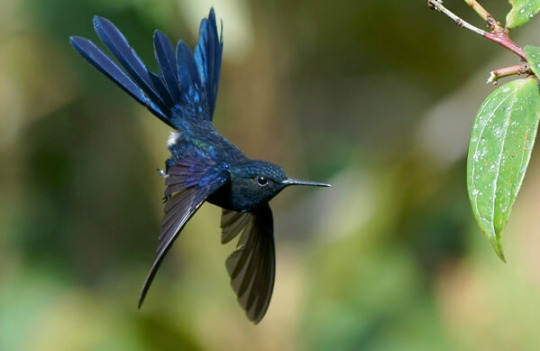
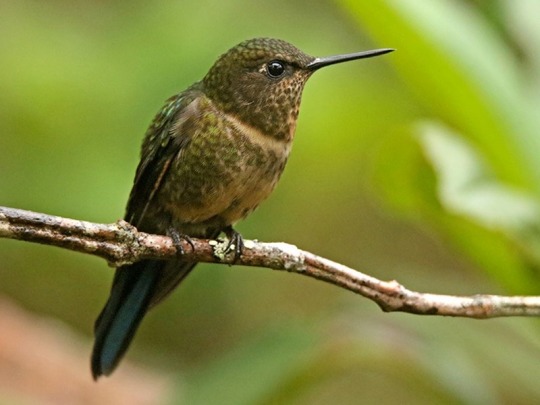
#conservación#conservation#ornithology#birdblr#birdlovers#birds#birdphotography#hummingbird#royal sunangel#peru#ecuador#conservatism#amazon#rainforest
449 notes
·
View notes
Text
Growing on Me - Chapter One
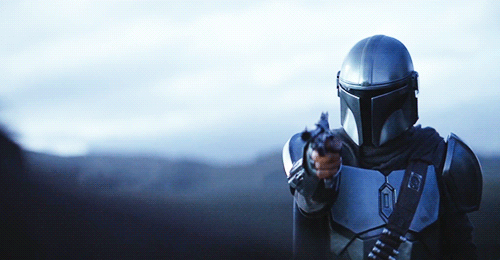
AO3
Din Djarin x botanist!Reader
Word Count: 6.1K
Summary: The Plant Species Inventory Project is a one hundred day expedition in the forests of Nevarro. You’re Nevarro’s best (and only) botanist, which is something Karga doesn’t want to risk losing. Making sure you’re safe on this years expedition, Karga hired a Mandalorian to protect you—Mando.
Series Content Warnings: 18+ only, MDNI, swearing, completely made up species and/or irl species instead of canon ones, inaccurate descriptions of Nevarro (it has forests instead of lava plains), lots of biology and environmental stuff (I promise I won’t go too deep with it [i have a bio degree]), 70% strangers/30% enemies to lovers, semi-slow burn, lots of tropes (because what are tropes if we don’t use them am I right?), canon violence, eventual SMUT, eventual FLUFF, reader is described as gender neutral as possible but has female sex organs and is occasionally referred to as a girl, no Y/N, hurt/comfort, happy ending guaranteed!
A/N: I have had this idea brewing in my mind for a while now. I’m so happy to share this with all of you. I truly love the topic I went to school for (biology), so this is mostly for me, oops. There will be lots of biology related stuff in this series, but I promise it will be “comprehensible”, not textbook jargon. Every single like, reblog, comment, smoke signal (that’d be a fun one), and ask truly means the world to me. Sharing my writing is a new thing for me and I’m enjoying it so far. Alsssoooo, I’m planning for this fic to be a long(er) series.
Leaves crunched underneath your hiking boots with every step you took into the forest. Further and further in, green soaked into your vision and found its home. The forest was moderately dense. Trees of various shapes and sizes were scattered throughout the land. Distances between tree trunks varied, but gaps still allowed for traversion.
The understory was spectacular. Biodiversity could be defined in a dictionary, and a picture of this landscape would take up two and a half pages. Tall, leafy plants with elongated petioles and broad leaves gave the small shade plants cover. Tiny collections of different mosses littered the surfaces of landlocked rocks. Vines found their way up tree trunks and retreated back down, hanging from branches as thick, green ropes.
Light peeked in from the gaps in the forest canopy. Small lizards basked on rocks where the light shined especially bright. Happy, buzzing pollinators made their way from flower to flower in search of sweet nectar.
The light also reflected off of Mando’s silver beskar, and right into your eyes.
You squinted at the white splotches that harassed your vision. In response, you turned your head and ignored the man that stood in the corner of your eye. Your feet continued to weave between plants, careful not to break too many with your steps. With each step, the brown rucksack on your back bounced against your torso and your blaster patted against your thigh.
Karga lent you the rucksack to hold the maps and forms needed for the expedition. It was one hundred days out here. You’ve done longer land surveys and experienced plenty of joy from doing them. But you were with your university mentor then.
Now you’re with Mando.
Karga insisted that the Mandalorian come with you. You sauntered into his office this morning to retrieve the rucksack and its contents, and were met with two men instead of just the High Magistrate himself. Karga pulled you aside and told you to, “think of him as more of an assistant,” but you knew he truly hired the man donning beskar to protect you.
You rolled your eyes in response, but thanked Karga nevertheless. The Plant Species Inventory Project was in its third year, and you were on your third year of running it. Every year you hiked through the surrounding forests of Nevarro for one hundred days to document the species of the forest.
But last year you had to stop early due to receiving a venomous bite from a lizard. Karga called in an airlift and had you rushed to the hospital. The doctors said that if you had arrived five minutes later, you would’ve been dead.
This year, Karga decided that your knife and blaster weren’t good enough against lizards. Instead of getting you better self defense tools, he bought a Mandalorian to protect you. From the lizards.
Right before you passed another rock with a lizard sunbathing on its peak, Mando made his way over to you and put his body between you and the rock. You huffed in response. The lizard had brown, pointy skin with splotches of blue along its back.
“That one is harmless, Mando,” you deadpanned to the man.
“Yeah? How do you know?” He quipped in response.
Taken aback by his sudden eagerness to talk to you—he hasn’t said a word to you since you both left Karga’s office—you quickly explained, “The harmless ones, Glendia ropensis, have blue spots on their back. The venomous ones, Glendia frediama, have green spots.”
Mando turned his helmet to look at you. You stared back at him, directly in his black visor. Other people have told you bits and pieces of folklore about the Mandalorians. The galaxy’s best warriors. They trained to develop their fighting skills as soon as they were old enough.
Yet, the beskar man didn’t phase you. Karga wouldn’t send you into a remote forest with a man he didn’t trust…right? You trusted Karga and his judgment, therefore you trusted Mando to not kill you.
“I thought you were a botanist?” The shiny man stated in confusion.
“I am,” you replied, “just because I know plants doesn’t mean I can’t know animals.”
His helmet tilted in a “fair enough” motion and you two continued to trek through the forest. Mando cleared his throat, “Karga said you were Nevarro’s best botanist.”
“I am,” you repeated, then continued with tight lips, “I’m also Nevarro’s only botanist.”
The man hummed, the sound crackling through the helmet. Facing forward, your gaze drifted downwards to the array of plants on the forest floor. Different leaf shapes popped out at you. Some plants had bright flowers while others lacked them.
BEEP BEEP BEEP.
Your watch went off, signaling for the first sampling. Bringing your rucksack around your shoulder and in front of you, you plopped it down on the ground and opened the sack. A holopad and two cubes were held in your hands as you brought them from out of the brown bag.
Flipping the switch on one of the cubes, you tossed it to Mando. He stood there, examining the device, while you pulled up the proper programs on the holopad. One program mapped your hike while the other helped you record the species you sampled. You tucked the holopad under your arm after setting up your sampling preferences.
You looked up to see Mando fiddling with the cube you gave him. Your hand whose arm wasn’t holding the holopad flicked the switch on the corresponding cube.
A hologram square projected out of the cubes, the devices corresponded to two diagonal corners of the square. You walked closer to the Mandalorian and the square shrunk. You walked further and the square grew.
Selecting a small rock protruding from the ground, you set the device on top of it. Mando picked up on your motions and found a log to prop the corresponding device onto.
“Don’t all of the sampling plots need to be the same size?” The silver man questioned.
You retrieved the holopad from under your arm and tapped the screen to initiate the calculations on the size of the plot. Looking up from the holopad you pointed to the screen, and replied to Mando with a hint of sass, “The programs standardize everything, so the sampling plots don’t need to be exact.”
His gaze bored into yours while the program calculated the dimensions of the plot and ran other diagnostics of the area. You raised an eyebrow at him, shifting your weight to one foot, “Do you not trust Nevarro’s best botanist?” You asked jokingly, yet with a tone of seriousness.
At first Mando didn’t respond in words, but his shoulders rose, as if he let out a silent laugh at you. He shook his head, helmet rotating from side to side, “It’s only been a couple hours, we’ll see,” Mando drawled. Light glinted off the beskar donning his head as he turned to observe the surrounding woods.
Bending down, you began to assess the leaves of the first plant to identify. The veins were parallel, running side by side to each other. Leaf arrangement was alternate, no two leaves shared the same growth point on the stem. No vein on the plant touched. They all went and came from the same direction, never meeting.
The second plant had net-like veining on its leaves. Veins crossed and morphed into each other. Leaf arrangement was opposite. Pairs of leaves pinched the stem with their petioles and crossed it perpendicularly. Every feature on the small herb met and weaved together. Each vein could only be minutely distinguished among the web of veins working together to keep the plant alive.
Stenica aparinese and Wortanum tortanumus.
The pair of you haven’t met before. You knew nothing about the beskar man, besides that he didn’t talk much. But it had only been a few hours, as Mando said before, and you still don’t feel like your paths have crossed. Even though you two have been walking side by side.
—
You completed ten samplings before you decided to call it a day. Squatting over plants and counting petals wasn’t mentally difficult, but it was physically. Knees aching and thighs burning, you two made your way through the maze of trees. The holopad glowed in the fading sunlight and aided you in finding the nearest safehouse.
Footsteps created a chorus of crunches that echoed off the tree trunks. Your gait was focused on avoiding the small, rare plants on the forest floor. Occasionally, you’d stop to get a closer look at some—having never seen them before.
Mando would pause behind you. His large hands settled on his belt, palm resting near his blaster. The helmet swiveled from side to side as he dragged his gaze over the forest. He would wait patiently near you as you took notes about the species, attempting to identify it.
“Are we good to go?” He’d grit out after a couple minutes.
You stood up from a squat and clicked the holopad off, throwing him a quick nod. The crunching chorus resumed, feet finding pockets of common grasses and clovers. Mando’s heavy boots tried to fall within the same pockets of green that yours did, but his success was debatable.
Sunlight shining down from the canopy became scarce, but not obsolete. The blaster hanging in a holster on your hip tapped against your thigh. The crunches caused by footsteps were accompanied by a cadence of muted pats.
Mando cleared his throat, a sound that choked out of the helmet’s modulator, “Do you know how to use that thing?” The beskar man asked.
You turned to face him, stopping in your tracks. You’ve never had to shoot it, the blaster hung from a holster just in case you needed it. But it can’t be that hard, right? Just point and shoot.
“I mean, yeah,” you shrugged, “you just point and shoot.” Thinking that was an acceptable answer for Mando, you turned to continue towards the safehouse.
“Just point and shoot?” Dry exasperation churned out like gravel from his helmet.
Lips became a line on your face, and your torso faced him again. Before you could start speaking, he cut you off. “You haven’t used it, have you?” Mando sighed.
You crossed your arms over your chest, exhaustion took over your expression, “Why does it matter? Does a Mandalorian need back up?”
Head turning, your footsteps resumed towards the safehouse. The holopad indicated it was less than fifty meters away. A warm shower and a comfy mattress sounded better than a shooting tutorial—from a man destined to be far better at it than you—would be.
Mando sighed and continued behind you. “What’s the point of carrying a blaster if you don’t know how to use it? If you’ve never shot it?” His helmet gave his tone a sharp edge.
“So I can look like I know how to use it. I don’t want to use it.”
It was true. You didn’t know what you would do if you actually had to use it. Your biology courses always talked about the fight or flight response, but they rarely talked about freeze.
That’s probably what you would do. You’d freeze.
“Firing bad shots at someone who does know how to use it, makes you look like you don’t know how to use it,” Mando said matter-of-factly.
Shoulders dropping, you sighed and trekked forwards. “Look, I know that the bolt comes out of the barrel and to point it at what I want to shoot. And pulling the trigger fires the blaster. I feel like that’s good enough for now,” you rebuked.
Thankfully, Mando dropped the subject, since the gray exterior of the safehouse came into view. The small building formed a basic cube of cement walls. Only a few windows interrupted the slabs of stone, and they were dark, bleak. Near the tree-brown door was the only sign that the safehouse wasn’t a long-lost monument—a glowing, yellow keypad. If you were the only humans in the forest, the safehouse shouldn’t have been used since last year.
Approaching the brown door, you dug into your memory for the code that allows entry. Karga asked you what code you wanted when he had them built throughout the forest.
That’s right! The code is your birth date.
You pressed the corresponding keys, the yellow glow bathed your fingertips in a warm light. The brown door slid open once the last key was pressed. Before you could even find the kriffing lightswitch, a crackle came from behind your head.
“What’s the code?” Mando asked with intention.
Mando must have assumed that you knew where the lightswitch was, because he continued his path over the threshold and directly into your back. The momentum from his body ramming into yours made you stumble, falling towards the wooden floors. You brought your arms up to brace yourself for the harsh impact.
And they hit nothing.
Instead, a large, gloved hand settled on your stomach and pulled you upwards. The muscles of his arm pressed against your side and burned their warmth into your skin. Suddenly, you were back on your feet and the lights were turned on.
You turned around, eyes wide in shock at the speed of events. Mando’s gloved finger dropped from its position under the switch. “Sorry about that,” he sighed.
Acting like he didn’t just seamlessly haul you back to your feet with one arm.
A feeling that was foreign—but not too foreign—seeped from your chest down to your stomach. The ticklish warmth emanated throughout your body in all directions. The same feeling you opted to tune out at while you were at university. Shit.
One guy put a hand on you and now you have butterflies? C’monnn.
Just like every other time, you blockade the warmth from spreading too far out. Mentally, barricades went up before the feeling could leave your torso. It’s better to stay focused on the task at hand.
Shhkt.
The Mandalorian pressed a button that triggered the door to slide closed.
“Um…”
Were you supposed to thank him? Scold him? Leave it at that? Your mouth tightened and you gave the Mandalorian a curt nod and a, “Thanks.”
Before receiving his reaction, you turned your back to him to assess the layout of the safehouse. A small, cozy living room with a fireplace filled up most of the space to your left. Knit blankets were draped over the thick cushions that sat upon the wooden furniture frames.
The space continued into the equally small kitchen. Basic silver appliances filled up most of the kitchen space. Simple, gray pantry doors blended with the small, semi-shiny machines. On the right of you were two doors, one you assumed contained the fresher, and the other containing beds.
Turning to your left, you removed your bag and plopped onto the thick cushions of the couch. The burning in your legs made you unconcerned about making food for dinner or discussing sleeping arrangements.
The burning—or maybe lack thereof—in Mando’s thighs didn’t dissuade him from being persistent.
Mando sauntered over to the couch you were laying on. The thunks of his heavy footsteps became louder as he grew nearer. “Are you going to tell me the code?” Mando’s helmet came into your line of sight as he towered over your slumped figure.
You groaned, “Are you going to stop walking into me?”
The horizontal line of his visor tilted in your view, signifying a, “really?” emotion. His shoulders dropped, “I just want to be able to get in and out of the houses.”
Begrudgingly you told him the code, “It’s my birthday,” you explained.
“Oh, uh, happy birthday.” He gave you a curt nod and turned to walk into the kitchen.
A small smile spread across your face, and you sighed once more, “Today isn’t my birthday, metal man, the code is my birthday.” You propped one of your elbows on the couch to look over the back of the couch at him. He stood against the small metal sink, arms crossed. His large hands grasped his biceps on each side of him. The Mandalorian made the sink look like he stole it from a child’s playset.
Once your gaze landed on him, his shoulders slumped. The T-shaped visor looked away from you and towards a map displayed on the wall. Silence ensued over the space. You too glanced at the map—yet there was nothing particularly noteworthy about it.
Mando’s visor pivoted on his shoulders and returned your gaze. After a few seconds his helmet crackled to life, “You’re getting a shooting lesson tomorrow morning.”
Your brows furrowed together and slanted downwards. “Ugggghh. I thought I told you I was good for now,” you gritted out. You let your elbow give out from underneath you and you flopped back down onto the couch cushions.
A rumbling noise came from over the back of the couch. Footsteps followed. The heavy boots Mando wore sent muted dunks your way—then they ceased. A black T framed by silver entered your view yet again.
“I’m not good with it. Tomorrow morning after you eat,” Mando finalized.
You maintained “eye contact” with him after you rolled your eyes. Instead of staying awake—sore—and putting up with his banthashit, you willed your body to get up and to one of the wooden doors on the right side of the safehouse. Bending down, you scooped your bag onto your shoulder. Hopefully the room was the fresher.
A few paces. The turn of a doorknob. Creaking door opened. A sink, similar to the one in the kitchen, welcomed you with—metal arms? Either way, you were glad to be able to get to clean yourself after a long day. The heavy backpack slid from your shoulder and onto the floor in front of the silver sink.
Turning to close the door, you look up and Mando’s stare is directed at you. An eyebrow of yours raised, directed at him. He began to saunter over to the door next to the freshers’. His bag hung from a large, closed fist at his side.
His frame passed the threshold, making the rectangular entrance appear much smaller. A heavy object hit something soft. Hopefully Mando was finally laying down so you could be left alone. You paused for a couple seconds to see if the heavy footsteps would resume—but nothing.
Relief flooded your body, giving you the idea to close the door and get ready for the night. Water washed away the remnants of soil, tiny pieces of bark, and fragments of shed leaves from your skin. Liquid that once ran dark down the fresher drain steadily turned clear. Your body was a sponge, sucking the warmth from the water into your bones.
You finished your pre-sleep routine and ventured over to the room that contained the beds. Calling it a bedroom was too homey for this space. It was more of a room bunk beds would be kept in at camping lodges. Except there were only two adult-sized beds. And Mando’s confusedly still-silver frame covered most of the bed he chose. He laid on the mattress like someone was giving a eulogy—for him.
Peeling your gaze away from the Mandalorian’s mummy-like body, you peeled back the blankets and shuffled onto the mediocre mattress. You faced away from Mando, getting a nice view of a generic forest picture framed on the wall. It was the only decoration in the room.
“Night, metal man,” you murmured. He was already asleep, why not tease him again?
The helmet crackled to life.
“Metal man earned you one lesson. Say it again and you’ll earn another,” the words gritted out from the beskar helmet.
You laid in your bed, wide-eyed. Not knowing what to say, and honestly too tired to have this conversation, you opted to say nothing. After a couple moments, you heard shuffling from over your shoulder. The helmet crackled once more.
“Night.”
Your eyes drooped once your brain knew that social interaction was no longer required for the night. The pillow beneath your head lulled your slumber closer and closer.
“Ruus,” came from behind you.
Too tired. So sleepy. You’ll ask in the morning.
—
You woke up to birds chirping. Their calls and songs came in through your cracked bedroom window. Naturally, your brain deciphered the individual calls.
Cheep. Cheep. Cheep.
Shrrrrrk. Shrrrrrk.
Ki-ki-ki-ki-ki-ki.
A common house sparrow, a buzzard, and a finch.
You shuffled around in your bed seeking a couple more minutes of comfort before your alarm inevitably went off. Mattress providing a soft cushion of support for your body, pillow delightfully cold against your face, and your eyelids heavy, your body absorbed your surroundings and let them influence you. Everything influenced you to stay the fuck in bed. Shifting in and out of consciousness, your blurry dreams pulled you further into a deeper slumber.
Dawn quickly approached, signaling for the birds to scream at each other that they’re awake. Bird calls blared through the air like tiny sirens. The rays of sunlight shone through the slits in the window blinds.
The extra-loud bird sounds snapped you out of your dreamlike state. Your gaze was trained on the warm glow of sunlight seeping into the room. Everything was natural. Ethereal. In sync and calm.
BEEP BEEP BEEP
Dank farrik. Whipping the duvet off your body and swinging your legs to let your feet touch the ground, you hurriedly zipped open your bag to find the holopad. Once your hands found it between clothes and your notebooks, you clicked it on. The bright screen made your eyes squint at the device. Clicking the screen once more, the alarm was silenced. Now that the blaring ceased, your mind began to catch up to your surroundings.
Oh kriff, the alarm probably woke up Mando. Your voice was a whisper, “I’m sorry if that woke yo–.” You turned towards his bed and the silver frame of his body was no longer there. Once you noticed his absence, you quieted yourself and listened for any noise. Nothing.
But then you smelled caf.
Your brain put two and two together. Your thoughts slowed down. After a second, you rummaged in your bag for a change of clothes and your toiletries. Once your outfit was changed, you strode over to the door and aimed to enter the fresher.
The wooden door opened to reveal Mando sitting on the couch, reading something on his holopad. Hopefully the helmet muffled any sounds you could make. You took one sock-clad step over the threshold. Then another. And another. Only a couple more until you reached the other door.
“Morning,” Mando’s speech crackled.
You turned towards him, holding up a hand, offering a quick, “Morning,” back. He didn’t say anything afterwards. Slunking into the fresher, you closed the door behind you and began your morning ritual.
Mid-teeth-brushing, you remembered last night.
“You’re getting a shooting lesson tomorrow morning.”
Fuck.
Well, wouldn’t Mando remind you the moment he saw you in the morning. You didn’t even set one foot inside the safehouse before he demanded the code for the door. Maybe he forgot. You can only hope.
The wooden rectangle swung on the hinges, opening the fresher. You stepped out and made your way to the kitchen. Before you entered the pantry covered space, you glanced over Mando’s shoulder to see what he was reading. His gloved finger clicked the holopad off before you could get a good look. Silver beskar filled your vision as he leaned forward to place the holopad on the empty table in front of the couch.
You continued to the kitchen, too hungry to care. Reaching into a cabinet, you retrieved a mug, then poured a generous amount of caf into it. In the adjacent cabinet were ration packs and miscellaneous hiking-friendly snacks. Trail mix. Jerky. Protein bars. Cans lined one section of a shelf—in case anyone wanted to craft their own meal, instead of tearing open a ration pack.
Being Nevarro’s best botanist had its perks, and one was that you helped Karga set up these safehouses. So your favorite ration packs were always in stock.
You reached for one and opened the pack, eager to satiate your stomach. Your fingers found the lip of a drawer and pulled, revealing small piles of cutlery in a wooden organizer. The same fingers danced over the utensils, determining which one you preferred. Opting for a spoon, you took the utensil and fed yourself generous spoonfuls. Hiking did a number on your hunger, plus you needed the energy.
After a few sips of your caf, finishing half the mug, and a ration pack, you leaned against the counter and observed the back of Mando. His large frame nearly spanned across an entire couch cushion. Silver donned his shoulders and traveled its way down his arms, towards his hands. He spread his wingspan across the couch, exaggerating his size—not that he needed to. The Mandalorian’s leather-clad fists also donned beskar on top of them. One of his fists flexed and relaxed in a slow rhythm.
Bubbling began at the center of your stomach, threatening to boil over into the rest of you. Heat bloomed near your face at the sight of him.
Nope. Not happening.
You peeled your gaze away from his figure and went to wash the mug. Thoughts wandered and yours landed on how Mando still hasn’t mentioned the lessons. Maybe you got off this time, you got lucky. Warm water poured over your grasp. Suds coated the shiny surface of the ceramic drinkware. The faucet let out a steady stream of water, and it dribbled against the metal lining of the sink. Soundwaves from the water traveled to your ears, which blocked the sounds of Mando’s footsteps approaching the kitchen.
You shut the faucet off and turned to place the mug back into the cabinet. The Mandalorian’s towering beskar figure standing in the space between the living room and the kitchen made you gasp in a lungful of air.
The modulator in his helmet crushed the tone of the sentence he spoke, “Let’s go, time for your lesson.”
Shit.
—
“You’re holding it wrong,” Mando stated sternly.
You sighed and rolled your eyes at him, “I’ve been holding it for, like, ten seconds. Not even.” Instead of focusing on the black T stamped on his silver helmet, you shifted your attention to the stump of a fallen tree. It was covered in moss and mushrooms, decaying. The fallen trunk with dense branches sprawled out on the forest floor behind the stump. Light could barely make it through the thick foliage.
Metal man insisted that the lesson should take place at a location far from the safehouse, “to keep it hidden, in case anything hears the blaster shots,” he reasoned. You supposed that it wasn’t a bad explanation, but the hike before your lesson was challenging. Mando guided you through the forest for so long, you thought he forgot about the lesson. But he didn’t. And this lesson sucked.
You were having more fun looking at the ground around you. A couple different leaf shapes popped out at you from below. Flowers were scattered throughout the area, and you matched them to their respective leaves, giving you quick identifications.
Mando used one of his gloved fingers to tap you on the shoulder. The gesture returned you to the present moment from your resentful thoughts. His leather-gloved hands gripped his own blaster. It was much larger than yours, yet his grasp consumed the handle of the weapon. Another broad, gloved hand covered the one gripping the handle.
Your hands attempted to match him on your own blaster. It was clear that you were struggling. Eyes in slits and brows furrowed, your gaze repeatedly shifted from his grip to your grip. Fingers stumbled to find their rightful places. Instead of giving up, you settled on something that sort of resembled the position his hands were in.
His helmet tilted downwards at you and cocked to the side, another expression of, “really?” This gesture seemed common with him. Metal clicked onto metal when Mando re-holstered his blaster. Then, his hands were on your blaster, giving the weapon a slight tug to release it from your grip.
You thought he was going to demonstrate on your considerably smaller blaster. Instead, he grabbed the barrel of the blaster and pointed the handle at you. His other hand reached for your wrist. Worn, warm leather slid against your skin. A wide palm rested against the back of your hand. Thick fingers formed a loose—but stern—grip around the base of your palm.
His hand was so warm. And strong. Every movement was done with purpose and confidence. The grip he had on your hand guided yours to the handle. Once you grasped the metal you expected him to let go, but his hold remained. Small flecks of light glinted off the barrel of the weapon when Mando turned your wrist.
Light shined off the helmet as well. He leaned down to check if your fingers were in the right places. Spotting an incorrect placement, he used his other hand to nudge a finger downwards and onto the handle. He nodded, “Good.”
The short praise sent heat flying towards your face, and you willed for it to sink back down. His thumb shifted on your wrist, giving you slight goosebumps. How could his fingers be that thick? And his hands so strong? What would they feel li—.
You backtracked in your head. Nope. You didn’t want to go there. You had one hundred days in this forest with this guy, and you had a job to do.
Mando took your other hand with his other hand, and placed it on top of the one gripping the handle. The hold he had over the new hand tightened. In exchange, your own grip tightened over the handle.
“This hand,” he tightened his grasp once more, “squeezes down on this hand,” he rasped as he shook the wrist holding onto the warming metal. Each squeeze threatened the bubbling in your stomach to evaporate into the rest of your body, but you repressed it. Managing to control your pointless butterflies, you did as he explained, and the hold you maintained felt better than it did previously.
As you raised the blaster up towards your eye level, Mando stepped away. Shutting one eye, you looked down the barrel and at the old tree stump. Your arms were both steady and relaxed. Remembering only the second half of Mando’s lecture from earlier, you spaced your feet shoulder width apart, and squeezed your grip around the trigger.
A bolt shot out of the end of the silver barrel and into the top of the tree stump—much higher than where you aimed. Crackling came from your right, “The piece of metal at the end of the barrel needs to line up with the notches above the trigger.”
You let out a heavy exhale, that information was in the second half of his lecture, “That’s what I did,” you told him. He let out an exhale in response, but his was in amusement, “Well, you didn’t hit the center,” his head jerked towards the stump to make his point.
He stood with his hands on his belt, shoulders back, with one knee out. Chrome plated armor gleamed from the sun coming in through the forest's canopy. His dark leather and clothing contrasted the bright metal. Without seeing his face, you knew he had a smirk on it.
You huffed as you turned towards him, “If it’s so easy, why don’t you do it?”
He gave you his signature head tilt towards the side, “You know that I would hit it,” he stated.
Honestly, you knew he could. The man is fully decked out in beskar armor and carries several weapons with him at all times. But you were fed up with the slight smugness he exuded. “Do it,” you challenged him.
Before you could even register he was doing so, he pulled his blaster from its holster. With a firm grip and confident aim, his blaster bolt hit dead center into the tree stump. Just as quickly as he pulled it out, he re-holstered his blaster and looked at you.
His incoming responses went through your mind, “It’s because I don’t suck,” “Don’t even bother,” “Why’d you buy a blaster in the first place?”
“Just try again,” his helmet gritted and the black T shook from side to side, “I’ve just been doing this longer than you have. It takes practice.”
Without thinking, you responded, “And what is ‘this’?” The Mandalorian gave you a stare—not like it wasn’t always a stare—but his helmet didn’t move a bit, unlike the usual tilts and shakes you had been getting.
“If by ‘this’ you mean shooting, then I’ve been shooting since I could hold a blaster. If you mean my profession, my occupation has required shooting since I’ve been an adult,” his voice stated, sounding like churning gravel.
Both of your eyebrows lifted and your eyes widened. You tried to hide it, but you probably failed. Only a few professions in the galaxy required shooting all of the time.
“So you’re a bounty hunter?” You asked with confusion, your mouth semi-dry.
Mando nodded, “Yes, now try again,” he pointed towards the stump.
‘Okay cool, we’re just going to gloss over that one?’, you thought. Instead of voicing your inner monologue, you raised the blaster once more. The metal lined up with the notch and you squeezed the trigger. Your shot landed half a meter above Mando’s. It was far from his shot, but much closer than your previous one.
“Better. But you flinched,” Mando critiqued. His gloved hands rested on his hips and his visor bored into you.
Trying again, the notch lined up with the metal as you peered down the barrel. Instead of holding your aim and then getting ready to fire, you fired as soon as your barrel lined up with the center of the stump. Energy left the end of the blaster and shot into the decaying wood. It landed about fifteen centimeters above Mando’s.
You heard crunching on the ground as the Mandalorian walked towards you. Lowering your blaster, you pointed the barrel at the ground. Maker, if he showed you how to hold the blaster again, you were going to lose it. Once he reached you, he stood in front of you, hands clasped in front of his belt buckle.
The helmet crackled to life, “Good job. Those were better than my first shots,” he stated plainly, then turned, “Let’s get going.” Before waiting for your response, he continued on into the dense forest.
—
The section of the forest you just entered was darker than any other area the pair of you had been in previously. Light barely made its way down from the forest canopy. Shade-loving plants bathed in the lack of light. Small rodents scampered from shrub to shrub, picking the fruits off of their stems. Scuttles were heard in all directions, creating a chorus of sounds influenced by food-web interactions.
Mando decided to lead the way. His helmet remained on a swivel as he constantly scanned the area. You had been this way before and knew there was nothing harmful, it was just dark and ‘scary’.
Then the scuttles stopped. And in response, Mando stopped. Which made you run right into the back of him. “Ufff!” You let out as your chest collided with his back. Rough, black fabric scratched against your face. It smelled like wood and musk, but in a good way. Did he usually smell like that or was it just the forest?
You pushed yourself off of him and stayed behind. Mando held a hand out to his side in a, ‘stay behind me’, signal. Everything froze, and left you freezing with it.
Then you felt it.
The ground shook softly. A steady rhythm of shakes became increasingly more intense. Trees sensed the waves too, as their leaves rattled above. You looked downwards and noticed that Mando retrieved his blaster from its holster. His stare was locked forwards. Almost as if he was looking beyond the dense foliage into the distance.
Dun. Dun. DUN.
Each shake caused your feet to vibrate in your boots. And then they stopped. In front of you, the large silhouette of a creature made its way through the foliage and towards you both. You squinted into the darkness in an attempt to identify the creature.
And Mando fired his blaster.
#thepascalofus#the mandalorian fanfiction#the mandalorian x reader#mando fic#mando x reader#mando fanfic#mando smut#mando fluff#din djarin fanfiction#din djarin fanfic#din djarin#din djarin x reader#thepascalofus fic#growing on me#thepascalofus growing on me#mando x botanist!reader#din djarin x botanist!reader
138 notes
·
View notes
Note
Can you tonowari x male reader
❝curious being❞

✭ pairing : tonowari x male reader
✭ fandom : avatar the way of water
✭ summary : (m/n) is a scientist that travels with the sully family to monitor kiri’s health, upon up and leaving to the Metkayina Clan (m/n) gains the attention of their leader tonowari
✭ avatar the way of water masterlist


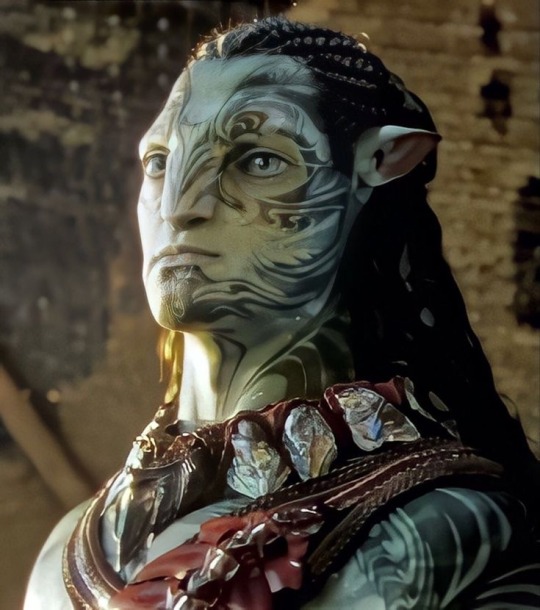

(M/N), a dedicated scientist with a passion for biology and botany, had always dreamed of exploring the diverse ecosystems of Pandora. When the opportunity to travel to the distant moon arose, he eagerly accepted the offer, knowing that this would be the adventure of a lifetime.
His mission was clear: to monitor the health and well-being of the Sully family, who had become an integral part of the Na'vi community on Pandora. Among them was Kiri, a young Na'vi child whose unique connection to the planet's flora and fauna had drawn the attention of scientists from Earth.
As (M/N) journeyed to Pandora, he marveled at the breathtaking beauty of the lush rainforests, vibrant bioluminescence, and the harmonious relationship between the Na'vi people and their environment. It was a world unlike any he had ever known.
Upon his arrival at the Metkayina Clan, (M/N) was met with a warm welcome from Neytiri, the leader of the clan. She introduced him to the Sully family, including Jake and Neytiri's daughter, Kiri, who had a deep bond with the Pandoran ecosystem.
Over the weeks and months that followed, (M/N) observed the Sully family's interactions with the Na'vi and the planet's flora and fauna. He documented Kiri's unique abilities and studied the intricate connections between the Na'vi and their environment.
As (M/N) immersed himself in the culture and way of life of the Metkayina Clan, he couldn't help but be drawn to the charismatic leader, Tonowari. A towering and imposing figure, Tonowari was revered by his people for his wisdom and leadership.
One day, as (M/N) conducted his research in the heart of the Pandoran rainforest, he encountered Tonowari. The leader had been observing the scientist's work from a distance, his keen eyes taking in every detail.
Tonowari approached (M/N) with a sense of curiosity, his voice deep and resonant. "You are a scientist from the sky people’s world, here to study our ways and our connection to Eywa."
(M/N) nodded, feeling a mixture of respect and awe in the presence of the Na'vi leader. "Yes, I am. I've come to learn and understand the harmony that exists between your people and this incredible planet."
Tonowari regarded (M/N) thoughtfully, his gaze penetrating. "Your presence here is a rare opportunity for both our worlds. You have much to learn, and we have much to share."
Over time, (M/N) and Tonowari would engage in conversations that transcended the boundaries of science and culture. They found common ground in their shared fascination with the mysteries of Pandora and their desire to protect and preserve its beauty.
As their bond deepened, (M/N) realized that his journey to Pandora had not only been a scientific expedition but also a journey of personal growth and enlightenment. In the presence of the Na'vi and their leader, he discovered a sense of belonging and purpose that transcended the boundaries of his own world.
As the days turned into weeks, (M/N) continued his work as a scientist, closely monitoring the Sully family's interactions with the Na'vi and the Pandoran ecosystem. His studies deepened his understanding of the unique bond between the Na'vi people and the living world around them.
Tonowari, the Metkayina Clan's leader, often accompanied (M/N) on his research expeditions. Their shared passion for Pandora's biodiversity and their discussions about preserving its delicate balance strengthened their growing friendship.
During one of their excursions deep into the Pandoran rainforest, (M/N) had the privilege of witnessing an awe-inspiring event—a rare connection between Kiri and a powerful Pandoran creature known as a Toruk. The moment was both magical and humbling, a testament to the profound bond between the Na'vi and their environment.
As (M/N) observed these extraordinary moments, he couldn't help but be captivated by the beauty and mystery of Pandora. He had come to realize that his role as a scientist was not just to observe but to protect and advocate for this unique world and its inhabitants.
One evening, under the soft glow of Pandoran bioluminescence, Tonowari and (M/N) sat by a tranquil river. The sound of the flowing water and the chorus of nocturnal creatures filled the air. Tonowari turned to the scientist with a thoughtful expression.
"(M/N), your presence here has been a gift to us," Tonowari began. "You have shown respect for our ways and a deep appreciation for the beauty of Pandora. In you, I see the potential for a bridge between our worlds."
(M/N) nodded, his heart filled with gratitude for the acceptance and wisdom of the Na'vi leader. "I am honored to have been welcomed into your clan, Tonowari. I hope to continue learning from your people and to find ways to protect this remarkable world."
Tonowari's eyes gleamed with a sense of purpose. "Together, we can work to safeguard Pandora. Your scientific knowledge and our spiritual connection to Eywa can be a formidable force for preservation."
From that moment on, (M/N) and Tonowari formed a partnership based on mutual respect, understanding, and a shared commitment to the well-being of Pandora. As they continued to explore the wonders of this mystical world, they knew that their collaboration held the potential to create a brighter future for both the Na'vi and humanity.
As (M/N) and Tonowari continued their collaborative efforts to study and protect Pandora, their bond deepened. They spent countless hours together, sharing knowledge and experiences that bridged the gap between their two worlds.
Tonowari introduced (M/N) to the spiritual practices of the Na'vi, teaching him about their deep connection to Eywa, the guiding force of the planet. (M/N) was humbled by the Na'vi's reverence for nature and their harmonious way of life, and he eagerly embraced their teachings.
In return, (M/N) shared his scientific expertise with the Na'vi, helping them better understand the intricate ecosystems of Pandora. He developed innovative methods to monitor the health of the flora and fauna, and his contributions to their understanding of the planet's biodiversity were invaluable.
One day, as they ventured into a particularly dense part of the Pandoran rainforest, (M/N) and Tonowari came across a previously undiscovered species of bioluminescent flora. The plants emitted a mesmerizing, iridescent glow, and their discovery was a testament to the untapped wonders of Pandora.
Tonowari placed a hand on (M/N)'s shoulder, his eyes filled with awe and appreciation. "Your presence has brought us closer to understanding and preserving the beauty of our world. Together, we are forging a path toward a brighter future for Pandora and its inhabitants."
(M/N) smiled, deeply moved by Tonowari's words. "And your wisdom and connection to Eywa have enriched my life in ways I never imagined. I am truly grateful for the opportunity to be a part of this journey."
Their collaboration extended beyond their scientific pursuits. (M/N) participated in the Na'vi's cultural rituals and celebrations, strengthening his bond with the Metkayina Clan. He learned to appreciate the simplicity of life on Pandora and the importance of living in harmony with nature.
As the seasons changed on Pandora and the vibrant colors of the flora transformed the landscape, (M/N) and Tonowari's partnership remained steadfast. They were united by a shared vision—a vision of a world where humans and Na'vi could coexist, protect the planet, and ensure its survival for generations to come.
In the heart of Pandora's wild beauty, (M/N) had found not only a purpose but a family. The Metkayina Clan had embraced him as one of their own, and Tonowari had become not only his mentor but also a trusted friend. Together, they continued their journey of discovery and preservation, determined to make a difference in the fragile and enchanting world they had come to love.
#x reader#x reader one shot#x reader oneshot#avatar the way of water#avatar way of water#avatar masterlist#tonowari#tonowari x y/n#tonowari x reader#tonowari x you#tonowari x male reader#tonowari x male you#tonowari x male y/n#avatar the way of water masterlist#avatar the way of water x reader
84 notes
·
View notes
Text
Guardians of the Night Sky
Bat Appreciation Day: Guardians of the Night Sky
As the sun sets on April 17th, the spotlight turns to the silent heroes of the night—the bats. Bat Appreciation Day invites us to explore the fascinating world of these nocturnal creatures, shedding light on their crucial role in maintaining ecological balance. But did you know that you can actively contribute to bat conservation right here in…

View On WordPress
#Bat Appreciation Day#bat appreciation initiatives#bat awareness#bat conservation#bat conservation programs#bat ecology#bat enthusiasts#bat facts#bat habitats#bat migration#bat preservation#bat protection efforts#bat protector#bat research#bat research initiatives#bat species#bat species diversity#Bat Watch Program#bat watching#Biodiversity Conservation#biodiversity documentation#biodiversity exploration#biodiversity monitoring#Chiropterologist#Chiropterology#citizen scientists#City Nature Challenge#City Nature Challenge 2024#Community Engagement#Community Involvement
1 note
·
View note
Note
Hey, uhm, about that „horse riding is harmful – but they need exercise!“ thread: what is never talked about in these discussions (this is my impression) is how priviliged it is that we can even abstain from using horses for transportation and farming.
And while our lifes have become much more comfortable since machines have replaced horses in these fields, I would argue that this shift has been very bad for nature as a whole. Even if someone does not believe in climate change, they could still see how it was bad that we built (and are building) asphalt streets and railroad tracks through wildlife habitats. And big machinery driving over soil compresses the earth unnecessarily, which makes it more difficult for plants to regrow. This would not be a problem if we still used horses.
I’m also wondering what people who are against horse owning would say to people who live in circumstances where they are still dependent on their animals. People who maybe live somewhere were the infrastructure needed in order to be able to use fossil fueled vehicles is not yet present. Or people who are just poor. Should they also stop riding and driving horses?
All of that being said, let’s imagine the consequences of gradually stopping all horse ownership. All horses currently living with humans as pets will stay with their owners and be cared for until they die, procreation will be prevented. (The alternative would of course be to release them into the wild, but deciding on WHERE to do so is very difficult and let’s just not do that in this scenario, as to not disturb already established ecosystems). Horse breeds which have been living with humans for the past thousands of years will go extinct. All the knowledge about how to feed horses, about horse behaviour and how to interact with them and about how to safely train them to be driven and ridden in a sustainable way will only exist in books within a hundred years. We are talking about skills that, at the end of the day, are more efficiently learned if there are teachers whom actually are practicing the craft. Humanity as a whole lives a bit more removed from nature – although, that is just how I see it.
I hope it’s okay for me to unload my thoughts on this onto you – I’m too shy to write under the post directly, but I really want to get this out of my head.
I live in germany by the way and I own a little pony mare. I don’t actually know her breed, it must have not been documented when she was born. She probably is a german riding pony with a healthy dose of arabian blood in her. I’ve riden and worked with horses for 14 years now and owned my mare for 5. I bought her when she was 11 years old and noone had really cared for her for two years. She spend that time on a pasture with other horses and was slightly malnourished and apathetic then. These days her fur is sparkling and her muscles have developed nicely and she expresses more happiness overall.
Hey, I don't know about the original poster as I don't follow them, but @acti-veg actually addresses your first point quite frequently. There are many people who cannot afford to not eat meat, abstain from medications that have been tested on animals, use horses for farming or transportation, etc. But the definition of veganism is, "a way of living which seeks to exclude, as far as is possible and practicable, all forms of exploitation of, and cruelty to, animals for food, clothing or any other purpose.” If a person cannot avoid some form of animal exploitation because of their health or inability to make an alternative living, this does not preclude them from being a vegan as long as they do their best to limit their reliance on animals in other areas.
I agree that industrialization has led to many advancements in society at the detriment of nature and biodiversity. But I would also point out that if people switched back to horses today, at our current population, that would also not be sustainable. There is not enough land to keep them properly without adding more to deforestation, and plowing with horses is less precise and worse for the soil than some up and coming alternatives, like laser weeding and using robotic seed planting, which can eliminate the need to plowing entirely.
You are right that if people stopped breeding horses many breeds would go extinct and knowledge in how to care for them would be lost. This is a downside that has to be balanced against the upsides, like no more halter horse monstrosities, no more horses being dumped & shipped to slaughter, and the potential for farmland to be re-wilded which would increase biodiversity.
It's totally ok to share your thoughts here, and your pony sounds super cute!
41 notes
·
View notes
Text
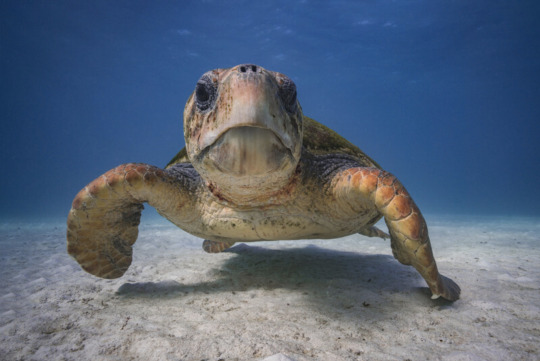

Excerpt from this story from Rewild.org:
A new study published online today, April 25, in the scientific journal Science provides the strongest evidence to date that not only is nature conservation successful, but that scaling conservation interventions up would be transformational for halting and reversing biodiversity loss—a crisis that can lead to ecosystem collapses and a planet less able to support life—and reducing the effects of climate change.
The findings of this first-ever comprehensive meta-analysis of the impact of conservation action are crucial as more than 44,000 species are documented as being at risk of extinction, with tremendous consequences for the ecosystems that stabilize the climate and that provide billions of people around the world with clean water, livelihoods, homes, and cultural preservation, among other ecosystem services. Governments recently adopted new global targets to halt and reverse biodiversity loss, making it even more critical to understand whether conservation interventions are working.
“If you look only at the trend of species declines, it would be easy to think that we’re failing to protect biodiversity, but you would not be looking at the full picture,” said Penny Langhammer, lead author of the study and executive vice president of Re:wild. “What we show with this paper is that conservation is, in fact, working to halt and reverse biodiversity loss. It is clear that conservation must be prioritized and receive significant additional resources and political support globally, while we simultaneously address the systemic drivers of biodiversity loss, such as unsustainable consumption and production.”
Although many studies look at individual conservation projects and interventions and their impact compared with no action taken, these papers have never been pulled into a single analysis to see how and whether conservation action is working overall. The co-authors conducted the first-ever meta-analysis of 186 studies, including 665 trials, that looked at the impact of a wide range of conservation interventions globally, and over time, compared to what would have happened without those interventions. The studies covered over a century of conservation action and evaluated actions targeting different levels of biodiversity—species, ecosystems and genetic diversity.
The meta-analysis found that conservation actions—including the establishment and management of protected areas, the eradication and control of invasive species, the sustainable management of ecosystems, habitat loss reduction and restoration—improved the state of biodiversity or slowed its decline in the majority of cases (66%) compared with no action taken at all. And when conservation interventions work, the paper’s co-authors found that they are highly effective.
32 notes
·
View notes
Text
Named in honor of two prominent Honduran conservationists, Magnolia ciroorum was found in Pico Bonito National Park during ongoing fieldwork to document and safeguard the threatened tree species within this globally important haven of biodiversity.
To date, just five individual trees of this new species have been identified, making it incredibly rare and eligible for Critically Endangered status on the IUCN Red List.
Magnolias are among the world's oldest flowering plants, dating back around one hundred million years. The ancestors of today's magnolias shared the planet with the dinosaurs, and relied on beetles for pollination because they evolved before bees even existed.
[…] This new discovery is a timely reminder that wild magnolias are seriously threatened throughout their global range, including Central America, another vital stronghold of these ancient trees.
#magnolia trees#honduras#trees#new species#‘new’#good news#science#environmentalism#nature#environment#carbon sinks#magnolia
42 notes
·
View notes
Text
The Intergovernmental Panel on Climate Change says protecting and restoring the world’s forests is critical for limiting the global temperature rise to 1.5C above pre-industrial levels, but many argue political and business leaders are focusing too much on “restoring” rather than “protecting”, and latching on to methods they hope will offset emissions rather than prevent them.
At least a third of the corporations promising to plant trees under Benioff’s 1t.org campaign are doing so to offset emissions, according to a Financial Times analysis of 73 pledge documents. The 46 planting pledges so far amount to at least 3bn new trees.
“It’s greenwashing,” says Kate Dooley, a lecturer specialising in carbon accounting at Melbourne university. “Corporations are greenwashing us when they say they will achieve net zero if that is relying on removing carbon through tree planting.”
Planting trees is more complicated than it sounds. Ecosystems must be restored to avoid biodiversity collapse, experts say, but “on the right land and in the right way”. Multiple projects so far have failed to benefit local people, others have created monoculture commercial plantations that are poor homes for wildlife, and a lack of continuing care means many saplings simply die.
Twenty-four of the 1t.org companies claim to have already planted nearly 300mn trees, some as far back as 2004, but only two projects disclose in their pledge documents how many survived.
Alexandra Heal, The illusion of a trillion trees
#Trillion Trees#trees#climate change#carbon offset#greenwashing#Google 'The illusion of a trillion trees' and click on the link there if FT has issues
150 notes
·
View notes